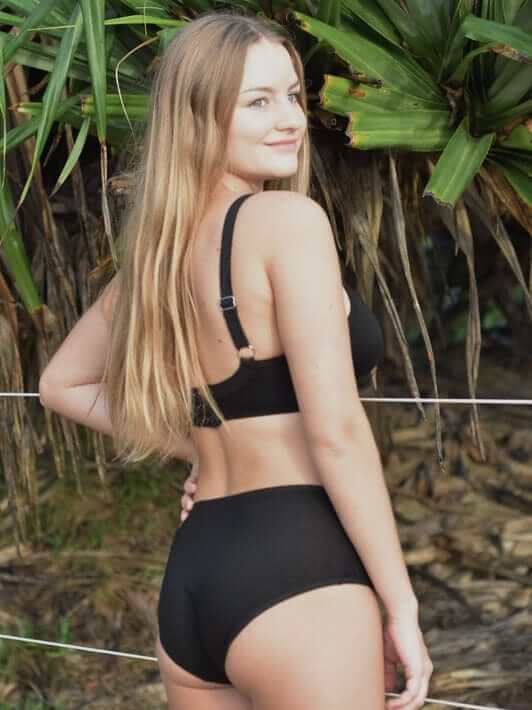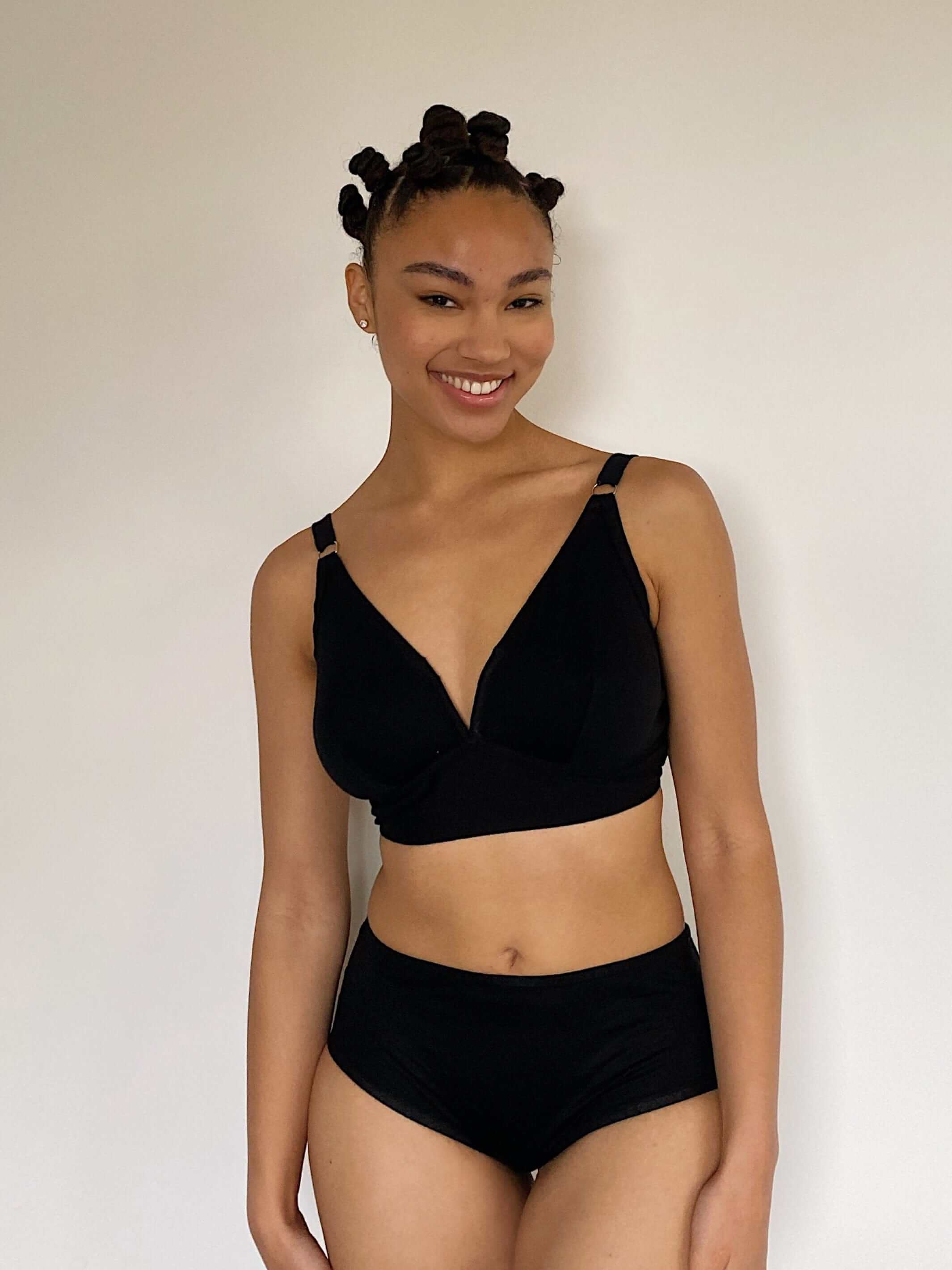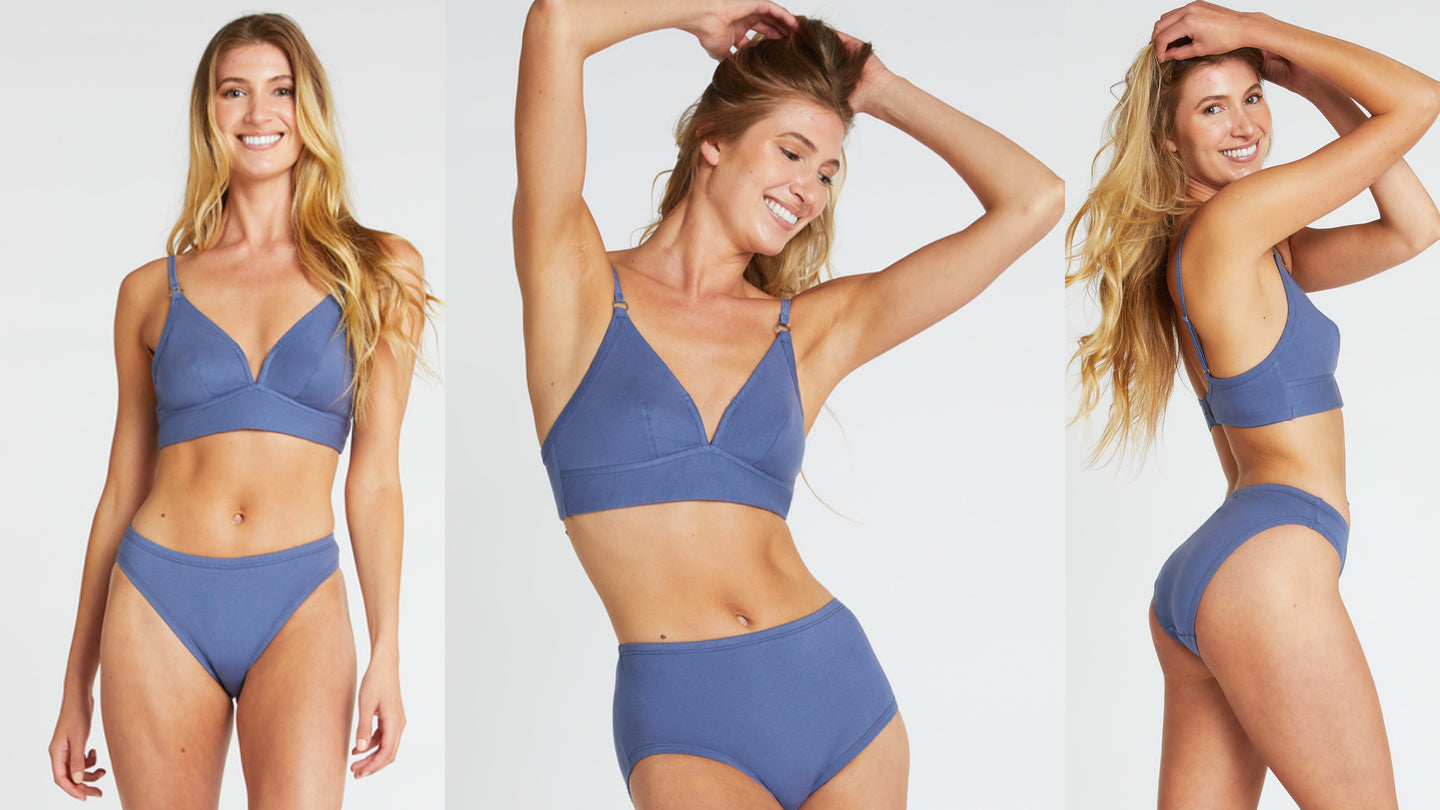There's a lot of eco-undies out there on the market, which is great. It's easier to make undies as they're so simple you can almost make them yourself, not like bras which you almost need a PhD to make! So why would you choose ours? They're certainly not the cheapest, so what makes them unique?
Almost all eco-undies out there are made from organic cotton or bamboo, which is good, but you need to be careful about bamboo. Whilst we are led to believe it's a good-fibre-citizen as it grows 'organically' and like the clappers, bamboo is very woody and hard to process. 50% of the harsh chemicals and water used to process it are unable to be re-used, and are released back into the environment causing dreadful pollution to communities. Be very careful about bamboo eco-undies - check out the maker, try and find out more about their supply chains and how they verify the product's 'clean' credentials. Don't just take our word on it, check out Good On You for its guide to bamboo and other eco fibres.
We make our undies from organic cotton or tencel. Organic cotton in itself can be controversial, as the yield is 30% less than regular cotton, whilst using the same amount of water to grow. So it's not perfect, but we sleep at night knowing that harsh chemicals have not been used in its manufacture or processing, and we don't advocate you buy heaps of stuff, just what you need, in a thoughtful way. Lenzing tencel is the stand-out, and 99% closed loop, meaning almost all the water and chemicals used for processing can be re-used.
The big difference between The Very Good Undies and other undies is the use of spandex for stretch. Our undies rely solely on the mechanical stretch of the knit, which means they can fit a little looser, but some of us like that. Spandex has become a high performing sports and intimates staple, but it is made of petrochemicals and relies on fossil fuel extraction for its creation. It then sheds microfibres into the ocean through washing over the course of it's lifespan, before it ends up in landfill (the spandex can't be separated from it's host - cotton or bamboo - for recycling into new product) giving off methane gas for hundreds of years.
Other bad citizens of clothing are of course nylon and polyester, which even 'eco' brands rely on for nylon elastic and polyester sewing thread. Their natural alternatives are massively more expensive and once you've got spandex in there, why bother with the rest being squeaky clean? If there's a garment label in there too, the cheapest are of course made of polyester.
We use either tree rubber elastic, or Vinatur (a Cradle 2 Cradle Gold certified elastic which will break down in commercial and home compost over time, with no toxicity) and Tencel sewing thread, also Cradle 2 Cradle Gold certified. These botanically circular materials are all eye-wateringly expensive, plus there's the freight costs of bringing them in from Europe, but in all cases there is only one global supplier of these materials
We love that there are other eco-undies options out there, but for the purist, who wants to bury these undies in the garden or feed them to worms afterwards, then ours are the most edible!
Our undies are more expensive, and can be a little looser, but this is the true cost of a super-clean sustainable product, and many of us who can afford a little extra, are happy with the difference.
PS - Thanks to Best Pegs for our super marine grade stainless steel pegs!




